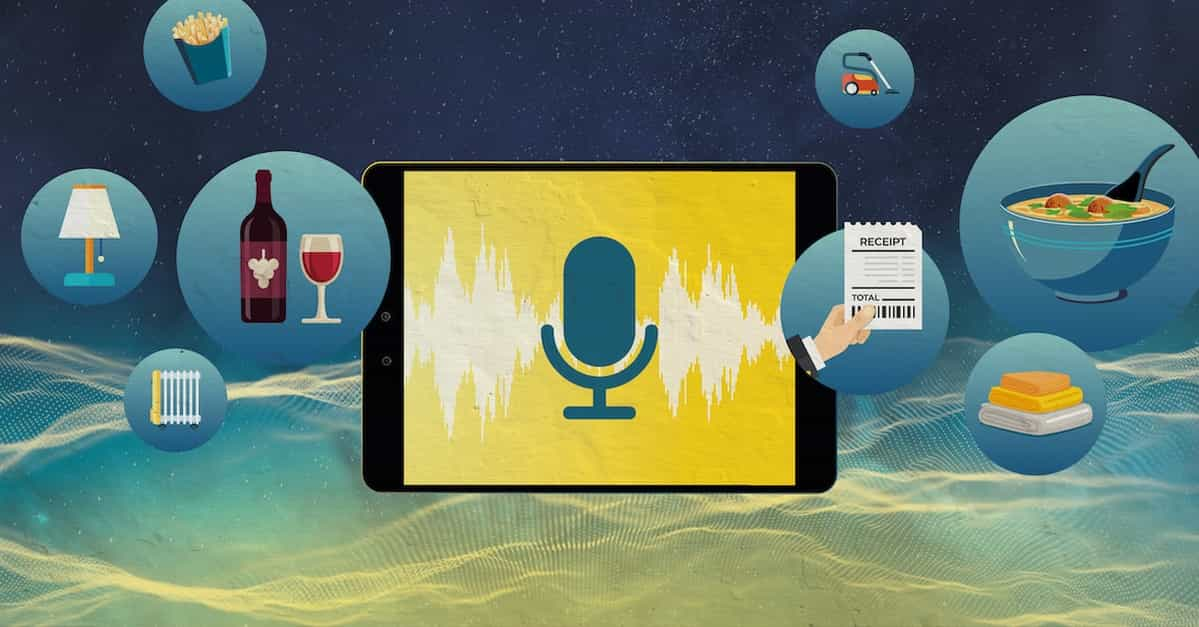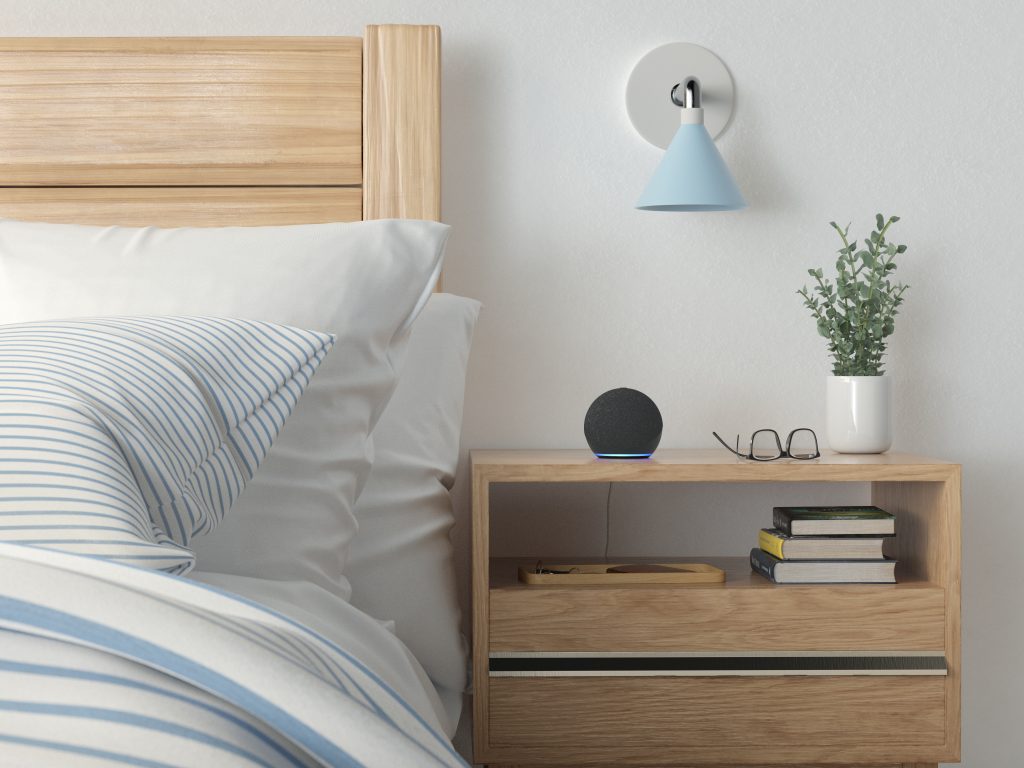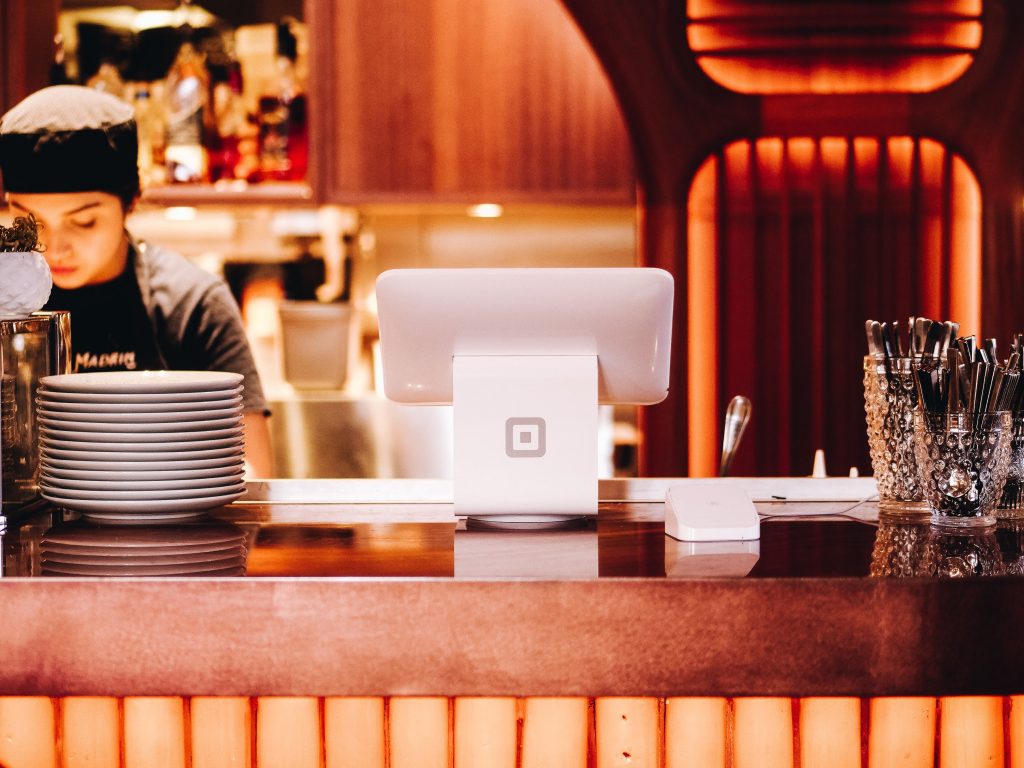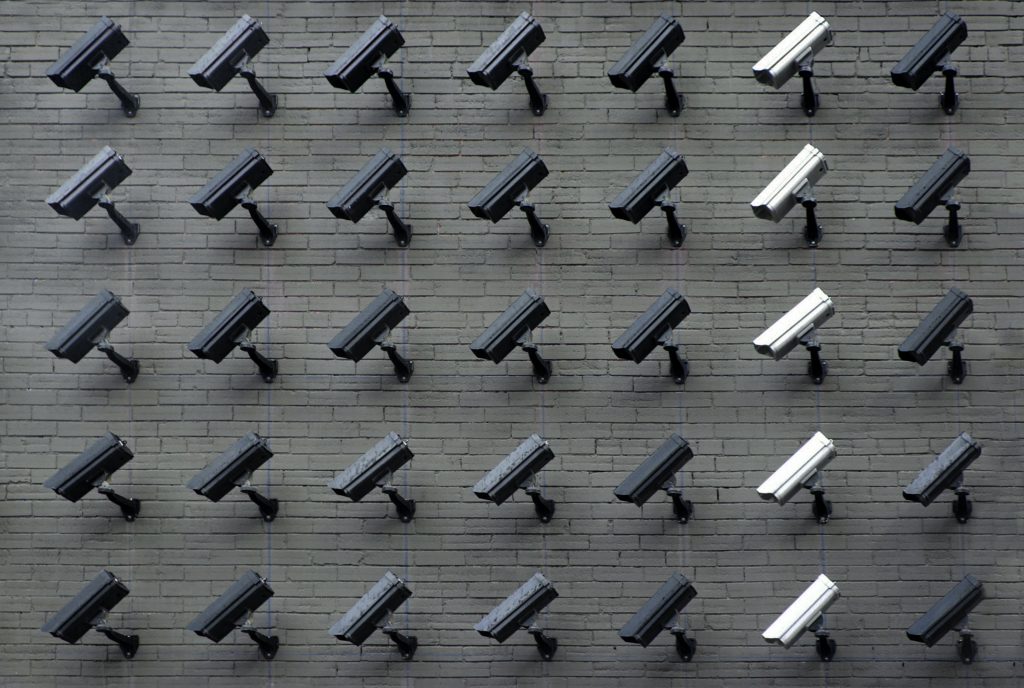How L'Osteria and FoodNotify Drive Digital Change in Hospitality
Discover how L’Osteria leverages FoodNotify’s digital solutions to optimize processes, reduce food waste, and drive sustainability in the hospitality...
Using voice control in hotels and restaurants? Read about voice technology options that already exist and what the future might look like.

"Alexa, wake me up to music". For years now, this may be the first thing some people say in the morning. Or for others, asking Alexa what the weather will be like today is part of their morning ritual. More and more people are now using voice assistants as an integral part of their everyday lives. A study estimates that 128 million people in the U.S. are using voice assistants.
I myself recently resolved to digitalize the routines of my everyday life using voice control. In doing so, the question arose as to what the progress of this technology actually looks like outside of one's own home, especially in the restaurant and hotel sector. For example, are there already innovative concepts – besides the well-known voice assistants for your home? What are the possibilities of integrating voice-controlled technology into hotels and restaurants? What about potential problem areas or risks associated with voice control? In this Utopia Gastronomica article, I would like to address these questions.
Whether you want to digitalize your business using voice control or other technological solutions: It's not just about the benefits digital transformation offers you and your business, but also your customers. After all, the goal in the hospitality industry is to always impress guests with a great experience. And this is where digitalization can come in handy and maximize that experience.
Restaurateurs and hoteliers are succeeding in offering added value to their guests through the use of voice-controlled technology in their businesses. Particularly in the hotel industry, voice assistants offer numerous advantages. Customers can use their voice in the rooms to switch the lights on and off, set the room temperature or control various entertainment devices. Just as they are already accustomed to doing in their own homes. But the use of voice recognition technology goes one step further in the hotel industry. It is also possible to order room service, book a table at the restaurant or make an appointment at the spa.
All these aspects not only contribute to a unique customer experience, but also generate added value for the business and the staff. As a result employees save time, which in turn allows them to perform other tasks or focus more on the needs and wishes of guests. Likewise, voice assistants provide round-the-clock coverage, guaranteeing a higher level of service.
78 % of hotel operators believe voice recognition technology will be massively adopted by 2025.
report from Oracle „Hotel 2025“
In the U.S., there are already some concepts of voice-controlled technologies that are widely used in several hotels. A well-known example for this is Alexa Smart Properties for Hospitality. This is a special version of Amazon's Echo technology that offers a customized solution for each hotel. For example, this has already been installed in some properties of the Marriott hotel chain or in the premises of the Wynn Las Vegas & Encore Resort hotel.
From "Alexa, when is happy hour" to "Alexa, send up 2 more towels" to "Alexa, reserve a table at the restaurant," all kinds of requests and wishes that a guest would normally communicate directly to the staff, are now made conveniently and easily via voice assistant. The service can also communicate with other smart devices in the hotel room, such as lighting, heating and music.
 Source: Amazon
Source: Amazon
In addition to the Amazon service, there are other voice assistants that have been developed for the special requirements of the hotel industry. These include the two U.S. companies Angie Hospitality and Houndify. Like Alexa, the same convenience is available to guests here. Angie Hospitality's technology also offers a complete solution for hotels, as the device includes a touchscreen function in addition to voice control.
In contrast to the U.S., the European market has not yet advanced as far in voice-controlled technology in the hotel industry. This is due to the fact that a large number of the voice assistants are currently only available in the U.S. However, it can be observed that there is interest among hoteliers in Germany. In a panel discussion, for example, it was stated that, according to experts, voice assistants in the hospitality industry are still in the development phase, but will soon be inevitable. For implementation in the establishments, it is then primarily a question of how services and offers can best be mapped by voice control.
It has already been shown how things are developing and what the possibilities are for digital voice assistants in the hotel industry. However, it is also interesting to see how the restaurant sector can benefit from the use of this technology or whether there are already possible uses.
Truth is, there aren't as many uses for voice control in restaurants as there are in hotels. After all, services such as switching lights on and off, setting the room temperature, or ordering room service are not available in restaurants. Nevertheless, it would be possible to order the desired food and drinks directly at the table by using your voice. Or to let the waiter know via voice assistant that you would like the bill.
However, so far there are no case studies in this area that apply this technology in the restaurant industry. This is mainly due to the loud background noise in the restaurant business – both in the kitchen and in the dining area. Because, as we know from our own experience, voice control works better when there is not too much background noise.

Nevertheless, concepts can be found that already optimize the customer experience in their own establishments with similar technology: a voice recognition system. This was successfully tested in a drive-in restaurant. The system was used to speed up order processing at the drive-in counter and reduce errors when placing orders. After a customer places their order, the employee starts preparing it. During this process, they pronounce the items in question, which are then recognized by the voice recognition system. The technology recognizes the labels and removes them from the order screen in real time. Once all items have been announced and removed from the screen, a receipt is printed indicating that the order is correct and ready to go.
Another use of this voice recognition system can also be found at the Domino's Pizza restaurant chain. Back in 2014, they introduced an app with voice recognition that allows orders to be placed by voice. This is now being tested in 20 U.S. branches of the restaurant chain. The virtual ordering assistant takes orders on the phone, while the staff can take care of preparing the orders or serving the guests at the restaurant.
In my opinion, these are two very interesting examples of how the restaurant industry can benefit from the use of speech recognition software. Unfortunately, this technology is still in development and only a few projects exist to date – especially in Europe.
However, there is also great interest in this, as a study show. The study investigated which applications of voice assistants are most desired by restaurant operators and guests. For example, the customer experience could be improved by voice control in the following areas:
of operators would find this interesting
of operators and guests would like to have this option
of operators would allow their guests to do this
Despite the growing interest and widespread use of voice assistants, some issues and concerns are still associated with this technology – especially in terms of data protection and privacy. Indeed, along with IT security and smooth operability, these are aspects that restaurateurs and hoteliers are responsible for when installing voice assistants in their own establishments. What data protection information must be given to guests? What are the legal requirements? What data is collected and what happens to it? It is important to inform yourself well in advance so that you are aware of all the legal and data protection details.

There are also ways to reduce customer concerns in this area. For example, Alexa for Hospitality automatically deletes voice commands every day. Also, like all other Alexa models, the device has a button that can be used to turn off the microphone.
To provide even more security in this area and create trust among guests, it is also recommended not to switch completely to voice control. Instead, all guests should still be given the option to disable this technology if they wish. Likewise, in the event of a Wi-Fi outage, it should be ensured that there is a fallback to manual control.
Voice-controlled technology is definitely not just for your own home. Voice assistants can also be of great benefit in the hospitality industry. For example, using this technology not only strengthens the customer experience, but also creates added value for staff.
Although voice control is already very popular in the home, we are still in the early development stages in the hospitality industry. However, I believe that a lot will happen in the next few years. This is because more and more restaurateurs and hoteliers are beginning to integrate digitalization into their own businesses and recognize the associated benefits. New and innovative concepts in particular, such as voice assistants, will stand out from the crowd and be in demand among businesses.
What is your opinion on voice-controlled technology? In what area would you want to apply it?
Discover how L’Osteria leverages FoodNotify’s digital solutions to optimize processes, reduce food waste, and drive sustainability in the hospitality...
NFTs open up many possibilities in a wide range of industries, including hospitality. But how can you use them in your hospitality business? Read...
Digital employees are a very relevant topic – also in the hospitality industry. Find out how to tackle this issue in your business.
Make sure you never miss out on updates and trends about digitalization in the hospitality industry by subscribing to our monthly newsletter. You will receive useful information delivered directly to your inbox.